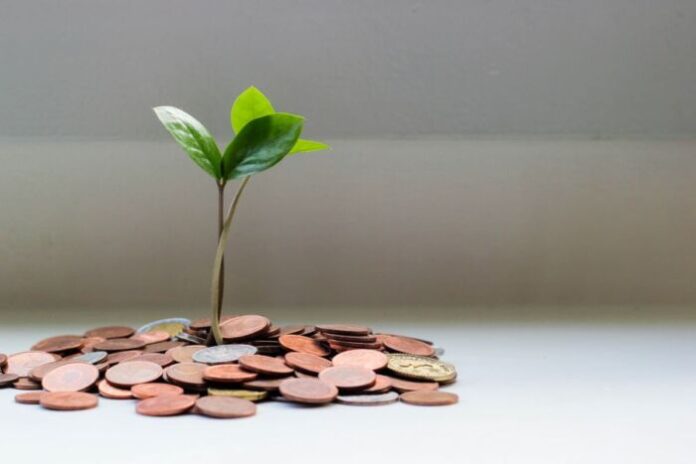
“Worse than this crisis there is only the drama of wasting it.” A beginning of hope, that of Ermete Realacci, president of the Symbola Foundation who cites Pope Francis presenting the 11th edition of the GreenItaly Report “An economy on a human scale to face the future” drawn up together with Unioncamere and promoted in collaboration with Conai , Ecopneus and Novamont, with the partnership of the Study Center of the Guglielmo Tagliacarne srl Chambers of Commerce and Ecocerved, with the patronage of the Ministry of the Environment and Protection of the Territory and the Sea.
The pandemic changes the timing of the recovery and the economy is unable to recover, hit by the second wave of the virus. Yet there is a way to go: the green economy. Many believe that the green economy is a game for people in the clouds, they are said to implement environmental policies as long as they do not weaken the economy. Instead, exactly the opposite is true. Those who have invested in the green come out strengthened regardless of the size of the company, green companies are better able to withstand the pandemic and when they are hit they are more resilient.
This is confirmed by the data of the GreenItaly Report presented by Giuseppe Tripoli, general secretary of Unioncamere. The Italian system is a leader in Europe in eco-efficiency, we have the primacy of recycling in Europe (79.3% in 2018), Italian companies use recycled materials for 14.3%, against a European average of 11% . The number of green companies is growing (+ 21.5%) which are the best performing also in terms of exports (+ 10%). Work also goes green: in 2019 employment in the sector grew by 35% and for the next few years it is expected that new jobs will be green and that old types of jobs will be updated with green skills. In the current difficult phase, even this type of business has some critical issues, but it has shown that it has an edge: they have positive expectations regarding the future in terms of employment, turnover and exports; they react better because they are more innovative and have made use of digital technologies (increased online sales and staff training on new technologies, reorganization of working times to contain costs, adaptations in business management).
In summary, we can say that they are more dynamic companies, they have innovated processes and products, they have retrained their employees and have a smarter corporate image, probably because they are young companies: they are mostly managed by people under 35. What do they expect from Next Generation EU? New labor policies, green transition (circular economy, energy efficiency, renewables, sustainable mobility) digital transition (broadband, 5G, digital capacities, industrial cloud) and public infrastructure.
Where there is green there is more technology
«As Europeans we made a choice before Covid. The Green Deal was signed on 11 December 2019 and demonstrates the commitment to a radical transformation, “said Vincenzo Amendola, Minister for European Affairs, commenting on the data in the GreenItaly Report. The green transition is interconnected with the digital one: where there is greener there is more technology. Despite its records in recycling and green companies, Italy has a problem of protecting the territory and hydrogeological instability: 80% of European landslides are in Italy and too much water is wasted (in some regions up to 60% , while in the Netherlands and Germany the loss is 5%).
“The production sector that includes food chains and bioproducts up to organic waste is of great value and is among the most resilient,” said Catia Bastioli, CEO of Novamont. The interconnection between green chemistry and agriculture must go beyond the simple interaction between economic and technical sectors: the focus must be on the health and regeneration of soils, an enabling factor for the transition of the model and overcoming the culture of waste. «Learning to do more with less is the great challenge we face. This revolution is played on territories, on the relationships between cities and food, on agriculture and integrated supply chains, on eco-design and biodegradability of products, on interconnected infrastructures for the treatment of liquid and solid organic waste and on the implementation of physical and chemical processes biotechnology to transform waste into products ». It is time to learn on the ground: the Green Deal is not just a vision, we need tools for the transition in which all actors in the area must participate.
Investing in green means looking to the future
For Paolo Gentiloni, European Commissioner for Economy, “this is the most difficult test since the postwar period. Is insisting on the green unrealistic? Looking away, no. In fact, the Commission has decided to confirm those identity choices that characterized the von der Leyen presidency. Previously, the reduction in emissions was set at 40% in 2030, now at 55%: it is not a generic target, it will translate into binding targets for industrial sectors. 37% of the funds will be invested in green and 20% in digital, which involves a great deal of reskilling and upskilling of our workforce.
Public investments in green transition must be encouraged, the signs are there and we can also see them in the data of the GreenItaly Report. Finance has also changed: Black Rock no longer finances companies that do not commit to the climate crisis, recalls Realacci, and in 2019 green bond issues grew by 50% compared to the previous year. But we absolutely need a streamlining of bureaucracy, which prevents even the best companies from taking off and the simplification decree is totally insufficient.



































